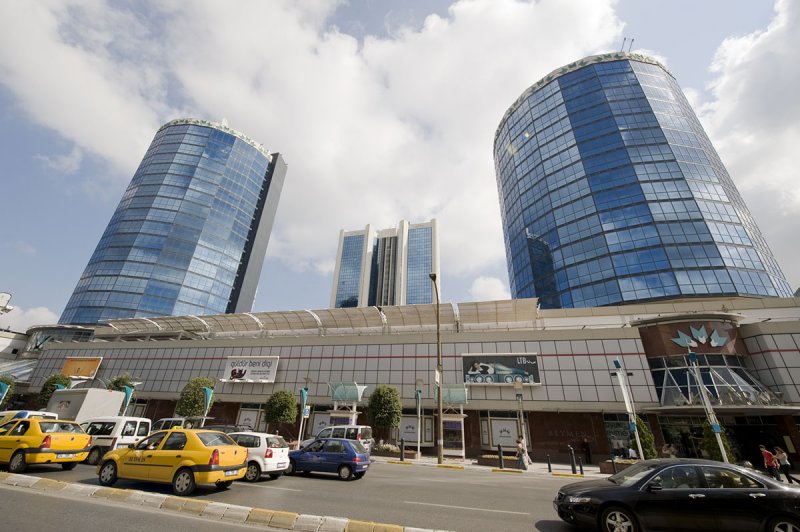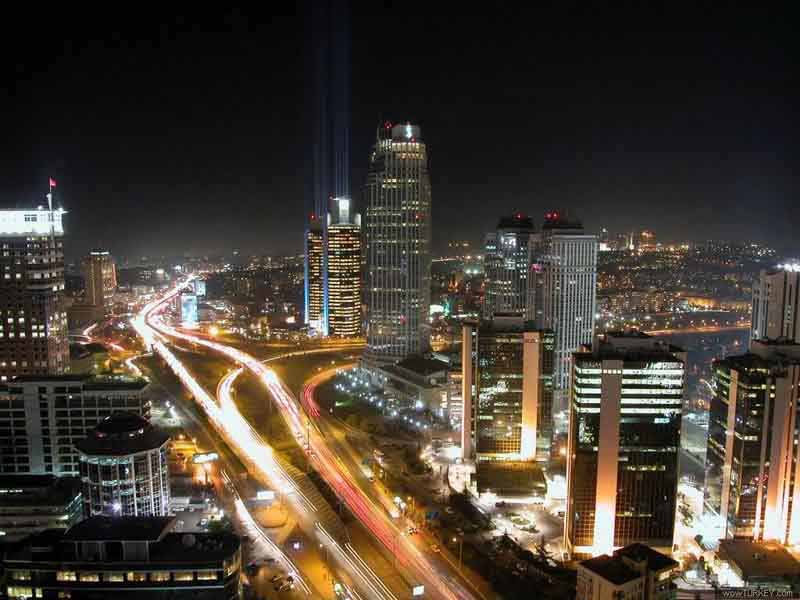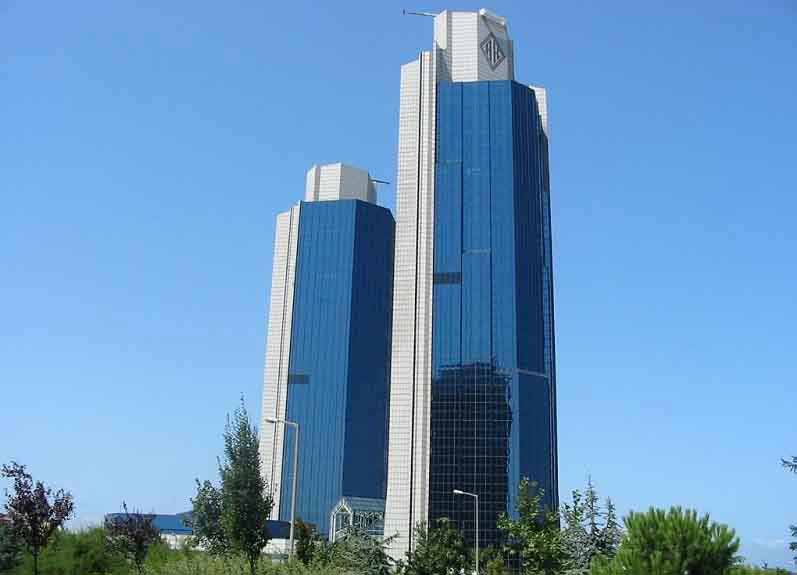Türkiye is a founding member of the OECD and the G20 industrial nations. For most of its republican history, Türkiye has adhered to a quasi-statist approach with strict government controls over private sector participation, foreign trade, and foreign direct investment. However, during the 1980s,Türkiye began a series of reforms and designed to shift the economy from a statist,insulated system to a more private-sector,market-based model.
Photo: Levent financial district in İstanbul
Since the economic crisis of 2001 and the reforms initiated by the finance minister of the time, inflation has fallen to single-digit numbers, investor confidence and foreign investment have soared, and unemployment has fallen. Türkiye has gradually opened up its markets through economic reforms by reducing government controls on foreign trade and investment and the privatisation of publicly-owned industries,and the liberalisation of many sectors to private and foreign participation has continued.
Photo: İstanbul Sabancı Towers
The GDP growth rate from 2002 to 2007 averaged 7.4%,which made Türkiye one of the fastest growing economies in the world during that period. Türkiye's economy is no longer dominated by traditional agricultural activities in the rural areas, but more so by a highly dynamic industrial complex in the major cities, mostly concentrated in the western provinces of the country, along with a developed services sector. The agricultural sector accounts for 11.9% of GDP, whereas industrial and service sectors make up 23.7% and 64.5%, respectively. The tourism sector has experienced rapid growth in the last twenty years, and constitutes an important part of the economy. In 2007, there were 27,214,988 visitors to the country, who contributed 18.5 billion USD to Türkiye's revenues. Other key sectors of the Turkish economy are banking, construction, automotive, home appliances, electronics, textiles, oil refining, petrochemistry, food, mining, iron and steel, and machine industry.

Photo: İstanbul Akmerkez Shopping Center
On January 1, 2005, the old Turkish Lira was replaced by the New Turkish Lira by dropping off six zeroes (1 YTL= 1,000,000 TL).As a result of continuing economic reforms, inflation has dropped to 8.2% in 2005, and the unemployment rate to 10.3%.With a per capita GDP (Nominal) of 5,062 USD,Turkey ranked 69th in the world in 2005. In 2004, it was estimated that 46.2% of total disposable income was received by the top 20% income earners, while the lowest 20% received 6%.
Türkiye has taken advantage of a customs union with the European Union, signed in 1995, to increase its industrial production destined for exports, while at the same time benefiting from EU-origin foreign investment into the country. In 2005, exports amounted to 73.5 billion USD while the imports stood at 116.8 billion USD, with increases of 16.3% and 19.7% compared to 2004, respectively. For 2006, the exports amounted to 85.8 billion USD, representing an increase of 16,8% over 2005. The most recent figure for exports is 106 billion USD in 2007 (main export partners: Germany 11.2%, UK 8%, Italy 6.95%, France 5.6%,Spain 4.3%, USA 3.88%, Total EU exports 56.5%.) A series of large privatizations,the stability fostered by the start of Türkiye's EU accession negotiations, strong and stable growth, and structural changes in the banking, retail, and telecommunications sectors have all contributed to a rise in foreign investment.


